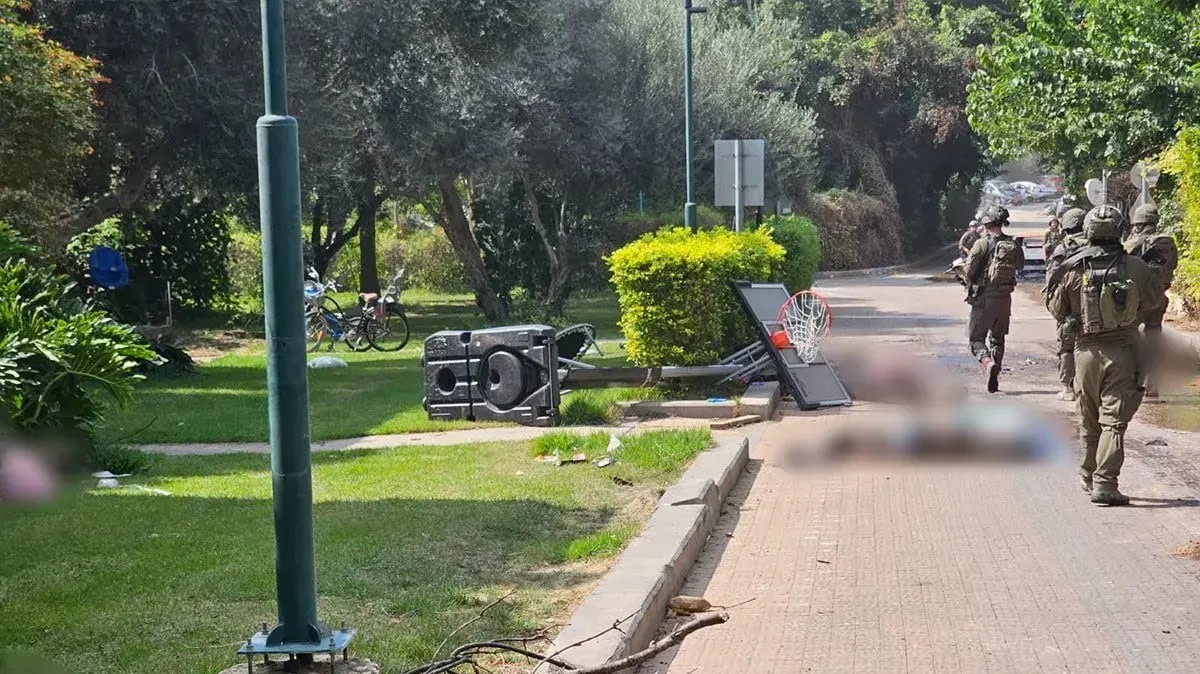After the loss of his daughter Liraz nine years ago, 100-year-old Be'eri resident Anadad Eldan authored "Shesh Sh'at Shahar," marking the time when war began on a fateful Shabbat, with terrorists infiltrating the Gaza periphery.
This book was dedicated to his daughter, and it included a song titled "On Be'eri's Walls." This poignant song, in an almost prophetic manner, grapples with the themes of loss and bereavement. It concludes with a line that holds onto hope, even in these challenging times, giving the song newfound depth and significance.
On Be'eri's Walls
"On the walls of Be'eri, I etched my verses,
Born from frigid sources and depths untold.
As the beams echoed with anguish and woe,
Their radiance faded into night's fold.
Prayers rise for our fallen children,
Locked doors, mercy's heartache, and mourning deep.
For parents bereft, who'll offer solace?
Whispered pleas for rain, as tears we weep.
In the darkest hour, a glimmer shines,
Dawn breaks through the depths of endless night."
'These walls, meant to shelter, were tainted with the blood of their friends'
Eldan, at the age of 100, and his 88-year-old wife, Shari Eldan, shared the harrowing experience that unfolded on October 7, a day etched with unbearable anguish. They, like many Kibbutz Be'eri members, found themselves besieged in their home by terrorists but miraculously survived.
Shari spoke of the poem with a sense of prophecy, praising its artistry.
She marveled at how the poem, written a decade ago, now rang true as a testament to pain, death, and the possibility of life beyond death. This is the essence of genuine poetry, she believed. She emphasized that the poem was born from personal pain and found expression in words that transcended the personal, merging into the community's collective sorrow.
Anadad named it "On Be'eri's Walls," signifying the supportive walls that constitute a home. However, in their case, these walls, meant to shelter, were tainted with the blood of their friends.

Eldan, the poet, was born in Poland in 1924.
In 1930, he emigrated to Israel with his father, becoming one of the first members of the Heftziba group located at the foot of Mount Gilboa. He was actively involved in the movement that brought Jewish refugees to Israel following the Holocaust.
Since 1960, he and Shari have been devoted members of Kibbutz Be'eri. His poems have been translated into numerous languages, including English, Arabic, Spanish, French, German, Hungarian, Polish, Yiddish, and Japanese. Eldan was also honored with the Levi Eshkol Award, recognizing his contributions to Hebrew literature.
The elderly couple were at home when terrorists opened fire on their glass door and pierced it.
The assailants also detonated the water heater on the roof, causing water to pour through the ceiling, flooding the house. Their daughter, herself a poet, recounted how her parents carried on with their daily routines amidst this terrifying ordeal. Her mother, Shari, came face to face with the terrorists. The parents didn't barricade themselves but continued with their daily activities, even during the attacks that involved murder, gunfire, and destruction.
She shared a remarkable anecdote about one of the terrorists who entered their home, asking for car keys. They had taken vehicles from the kibbutz for kidnapping purposes. Her mother, in her own words, said, "He wasn't nice."
Another terrorist went to use the bathroom in the house and even expressed gratitude with a gesture of clasping his hands together and bowing slightly. Her mother's comment on him was surprising: "He was actually gentle," she said with a hint of laughter. She added, "He came to murder me, but on his way, he went to the bathroom."
She added: "I was right. He wasn't nice. I considered everything."
She spoke about the terrorist asking for car keys in Arabic, revealing she understood Arabic but deliberately feigned ignorance with a gesture. Meanwhile, drawers on the computer desk were left open, and a closet door was ajar—perhaps the terrorists searching for something. The settlement lost power, prompting her to use a flashlight while preparing for a possible evacuation.
Whether it was a miracle, divine providence, spiritual protection, or the energy, prayers, wisdom, resourcefulness, and courage, the couple emerged from the ordeal with their lives intact.
The Jerusalem Post and OneFamily are working together to help support the victims of the Hamas massacre and the soldiers of Israel who have been drafted to ensure that it never happens again.
Become a partner in this project by donating to OneFamily >>
